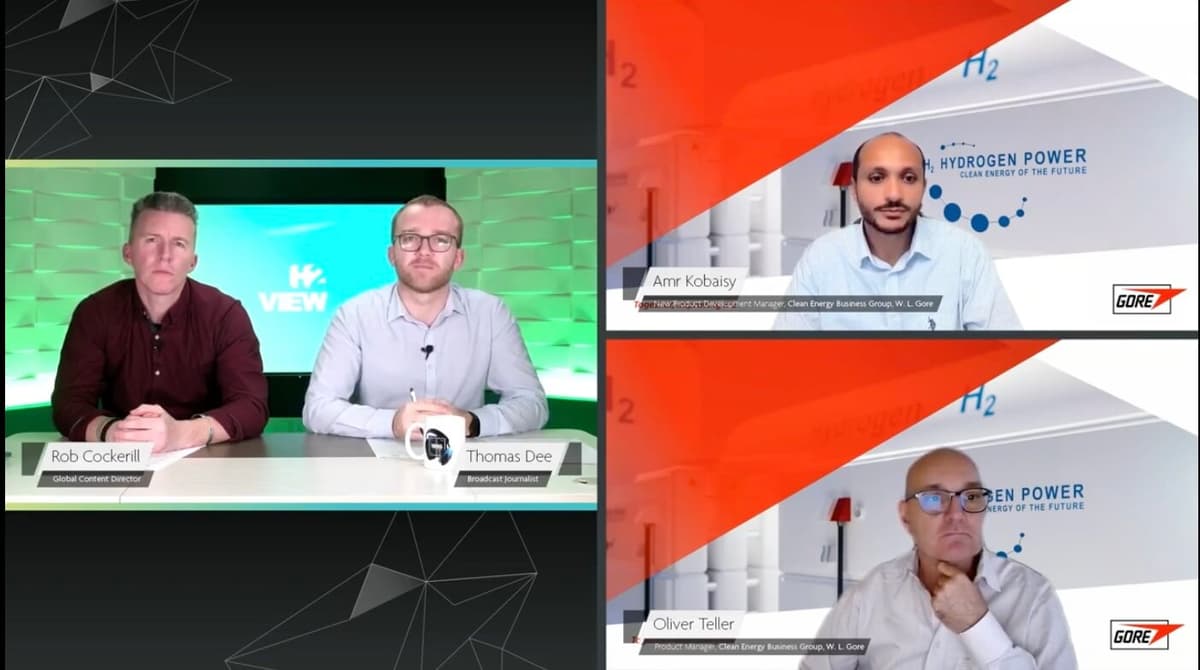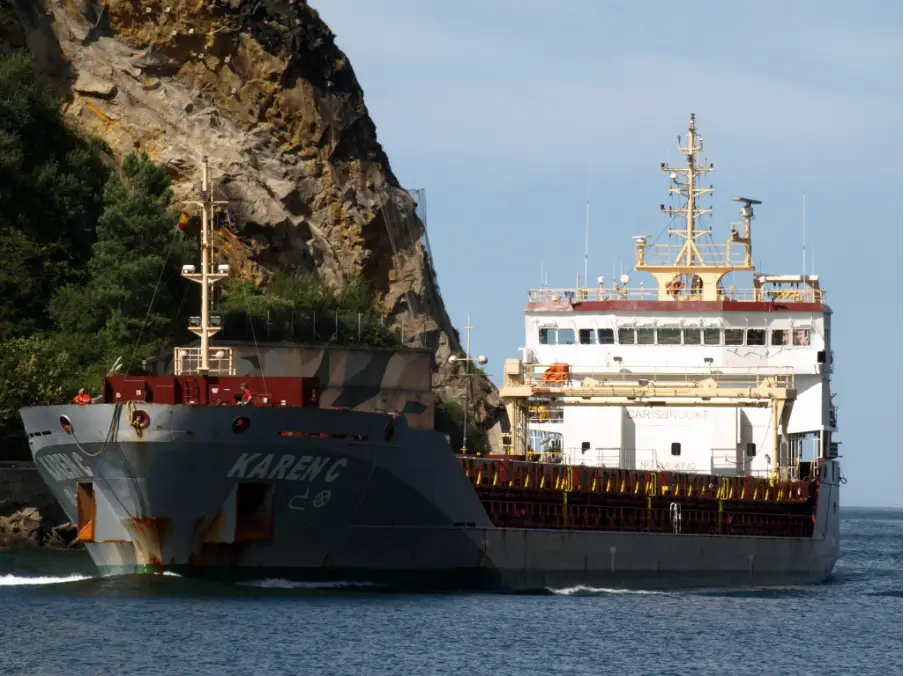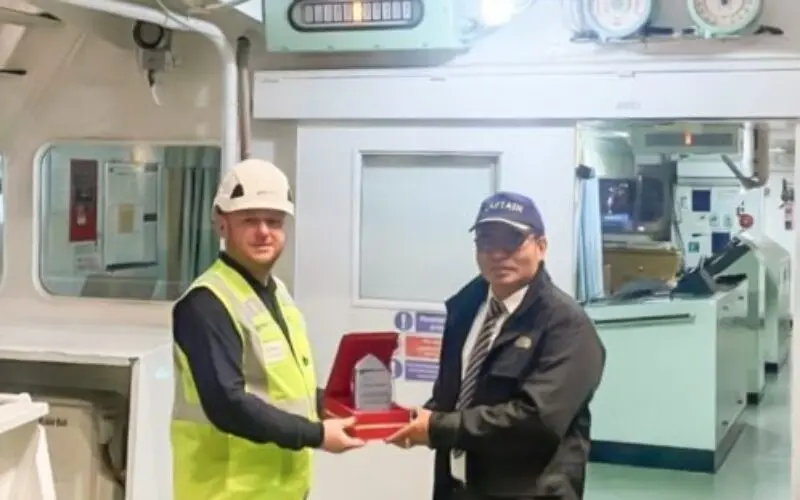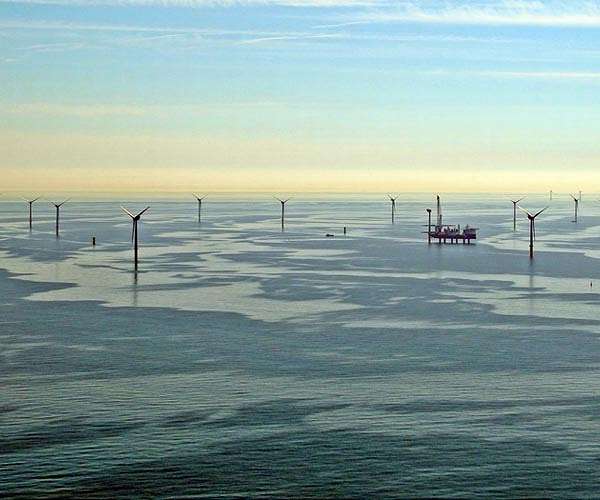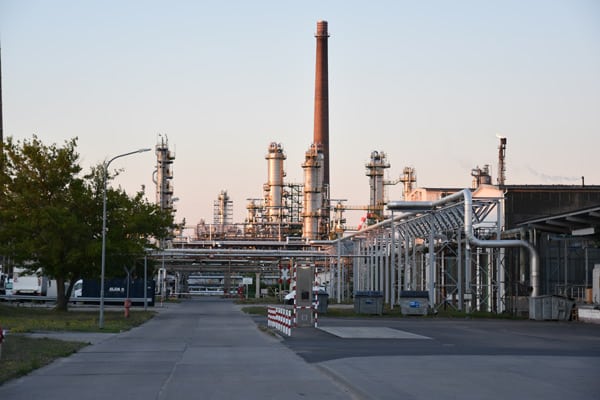
PCK and Enertrag start HyPE+ project
Initial concrete plans have emerged for the future of the PCK refinery in Schwedt, eastern Germany. On May 8, 2023, Enertrag and PCK Raffinerie GmbH presented a feasibility study that throws light on what will happen at the refinery site in the run-up to 2045. According to the report, extensive hydrogen infrastructure could be built at the location which would involve an investment of EUR 15 billion.
The CEOs of both companies as well as the local Brandenburg economy minister Jörg Steinbach traveled especially to the town – a planned settlement whose appearance still bears the hallmarks of the socialist era. Together they presented their proposals for how the site could be made fit for the future while also allowing oil and gas operations to continue. The task of elaborating the plans prior to this announcement had fallen to a 15-member project team which had grappled with six different work packages over the course of eight months.
PCK chairman Ralf Schairer explained how it would be possible “to create added value in the region,” with the Schwedt refinery potentially obtaining hydrogen from the surrounding area by pipeline at a later date. However, the intention is also for significant quantities of hydrogen to be produced on site which are then either sold or processed further to make synthetic fuels or high-value chemical products. Looking ahead, more than 30,000 metric tons of hydrogen could be manufactured each year by the end of 2027.

“Here we envisage a center for green transformation.”
Gunar Hering, Enertrag chairman
To make this happen, 32 megawatts of electrolyzer capacity from Siemens Energy are to be installed initially (see H2-international, May 2023). Capacity is then expected to be increased by 2027 to between 300 and 400 megawatts. By 2030, hydrogen production could be expanded to 160,000 metric tons a year, which would equate to around 20 percent (roughly 1 gigawatt) of the electrolyzer capacity envisioned in Germany’s national hydrogen strategy. This would allow for the annual production of 2 million metric tons of aviation fuel, methanol and high-value chemicals and 1 million metric tons of biofuels in addition to providing green heating to the town of Schwedt. The level of investment funneled into the area could run to approximately EUR 15 billion.
One key issue, though, according to Schairer, is that the total amount of liquid fuels processed is likely to be reduced from 11 million to 3 million metric tons per year. At first this caused him much concern. He explained, however: “Of the 11 million tons, only 20 percent of the value is generated in Schwedt. At 3 million tons, 100 percent of the value is created here. So the euros stay in the region.”

Directing his comments to the around 1,200 PCK employees, Ralf Schairer reassured them by saying: “We will be refining crude oil for many years to come. We are talking about an adjustment taking place over two decades.”
CEO of PCK Harry Gnorski added: “We are the largest producer of hydrogen in the region, but it’s still gray.” In order for gray to become green he hopes that industrial companies will establish themselves in the area. The size of the growth potential in northeastern Germany is illustrated by the rise of Enertrag, which currently employs 900 members of staff, a figure it says is set to grow to 2,000 by 2028. Speaking via video, Michael Kellner, parliamentary state secretary to the German economy minister, emphasized the point: “PCK and Enertrag are the two most important companies in Uckermark.”
Less water needed
When asked by H2-international about the water requirement in the region, project coordinator Tobias Bischof-Niemz responded: “This will reduce significantly.” It was stated that, up until now, PCK has held water rights for 20 million metric tons a year. Around 1 million tons of water would be needed annually per gigawatt of installed electrolyzer capacity. If 5 gigawatts of capacity is installed in the area, the quantity of water called for would be 5 million tons – in other words a quarter of the amount previously required.
ECK not PCK
Following the joint press conference, the gentlemen met with Schwedt’s mayor, Annekathrin Hoppe, and local residents to discuss the feasibility study as part of the “Zukunft Jetzt!” (Future Now!) talk-show series. Teasingly, Steinbach appealed for a campaign to be launched to change PCK’s name to ECK, thus symbolizing that Schwedt is no longer primarily focused on petrochemicals, instead becoming a base for manufacturing e-fuels and e-chemicals as part of a renewables, chemicals and fuel alliance.


